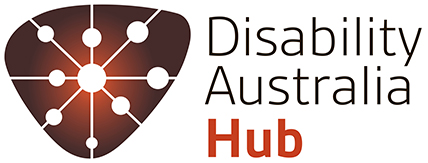
Information on types of advocacy and who provides disability advocacy.
Self advocacy
Self-advocacy is when someone with a disability speaks up and represents themselves. In Queensland there are some organisations running workshops on how to build self-advocacy skills. These include:
AMPARO advocacy: working to build the capacity of individuals with CALD backgrounds with disability.
Some resources available to support self-advocacy include:
- Self-advocacy resources from Aged and Disability Advocacy Australia
- Barriers, rights and advocacy resources from CRU
- Self-advocacy resources from People With Disability Australia
Citizen advocacy
Citizen advocacy is where a community volunteer advocates for a person with a disability. The relationship between the advocate and protégé (person with disability) is usually sustained for a long period of time. The advocate and protégé are supported by a citizen advocacy organisation.
In Queensland there are two citizen advocacy organisations:
Capricorn Citizen Advocacy (based in Rockhampton) and Sunshine Coast Citizen Advocacy (based in the Maroochydore).
Peer support
Peer support is when people use their own experiences to help each other. Peer support networks can be a great place to share personal experiences and emotional, social or practical help. Peer support groups can be both online groups and face to face groups.
Queenslanders with Disability run different peer support groups including specialist groups from under 35’s and over 65’s.
Side by Side, run by Aboriginal & Torres Strait Islander Disability Network organize yarning circles for mob with disability to get together.
Queensland Collective for Inclusive Education run peer support groups for people wanting to advocate for an inclusive education for children in their care.
Limbs 4 Life are a national organisation who connects volunteer peer support volunteers with lived experience of limb loss with those becoming amputees.
Systemic advocacy
Systemic advocacy is primarily involved with influencing and changing systems. These changes are to legislation, policy and practices that will benefit people with disability as a group within society.
Many of the advocacy organisations in Queensland engage in systemic advocacy, however Queensland Advocacy Incorporated have a dedicated systemic advocacy service. To get involved with systemic advocacy, you can send your views via the QAI changing systems webpage.
Additionally, the Office of the Public Advocate advocates for systemic change and values hearing people with disabilities stories to inform their systemic work.
Individual advocacy
Individual advocacy is a one-on-one approach, usually undertaken by a professional advocate, to support people with disability:
- to understand their rights
- to navigate services
- to address gaps in support
- to address discrimination, conflict and unfair treatment
- to make informed decisions
- to build capacity to advocate for themselves
- ensure fundamental needs are met.
In Queensland there are 11 disability advocacy organisations funded by the Department of Seniors, Disability Services and Aboriginal and Torres Strait Islander Partnerships to provide individual disability advocacy. Advocacy is provided based on either a regional need or for certain cohorts. The 11 individual advocacy organisations funded are:
- Aged and Disability Advocacy Australia (ADAA)
- Speaking Up For You (SUFY)
- The Advocacy and Support Centre (TASC)
- Rights In Action
- Mackay Advocacy
- People with Disability Australia (PWDA)
- Capricorn Citizen Advocacy (CCA)
- Independent Advocacy in the Tropics (IATI)
- Amparo (specialising in working with people who identify as culturally and linguistically diverse)
- Side by Side (by Aboriginal and Torres Strait Islander Disability Network Queensland – ATSIDNQ) (specialising in working with people who identify as Aboriginal and/or Torres Strait Islander
- Queensland Advocacy Incorporated (QAI) (specialising in working with people under the age of 18)
To find an individual advocate in your area, head to the contact us page or use the National Disability Advocacy finder on the Department of Social Services website or to our contact us page.





